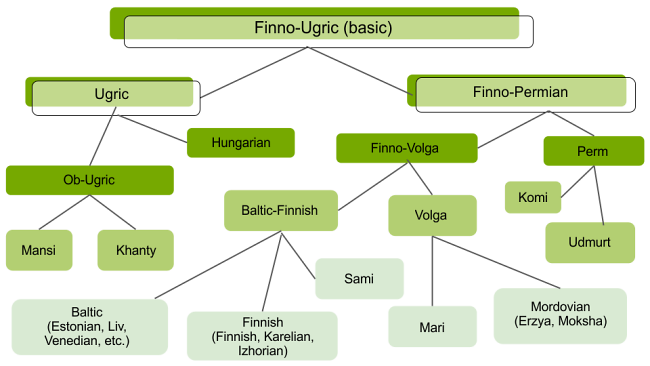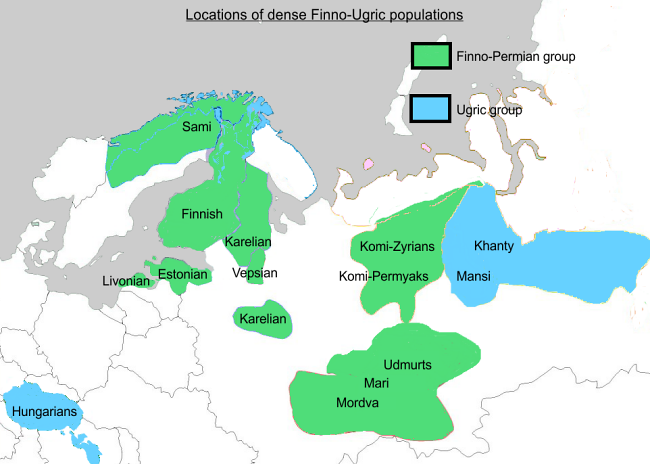
Finno-Ugric latest history scoop
I will start from the history of communication between russian and mansi people. In general, during the time of the Golden Horde (aka Kipchak Khanate), the Mansi raided the Komi and the Stroganovs domain. As a result, Yermak made a retaliatory invasion. When Yermak annexed Siberia, initially the Mansi princes and boyars were accepted into the same rank already as part of Russia. As a result, Ugra began to give furs to the Russians. But the Russians came with vodka, because the drunken Mansi sold their furs for nothing, and as a result, the Mansi began to drink too much, which was one of the main reasons for the decline of the Mansi civilization, and what is happening to this day.
Тhe history of Finno-Ugric activism, which I am involved in, is not new. 100 years ago, various people already tried to deal with it, and under Lenin a rather big breakthrough was made: they began to write literature in languages to educate peoples, since not all of them Russian. But after the arrival of Stalin, persecution began, languages were gradually banned, the Erzya linguist and scientist Anatoliy Ryabov, the Udmurt scientist Guzebay Gerd and many other activists were shot. The number of the Izhora people in the period from 1926 to 1956 decreased from 16 thousand to 1 thousand, which gives reason to classify this as genocide, and for example, the Crimean Tatars were evicted to Kazakhstan for cooperation with Hitler on the orders of Beria, and many died on the way there. To me is not clear what happened to the Mansi during the repressions, but even before the arrival of Lenin, some Mansi groups were assimilated by Tatars and Russians. In the future, all education was conducted exclusively in Russian. At the same time, children of small nationalities were beaten for using their native language. As a result, many of them stopped speaking the language of their ancestors.
Even in the 90s, schools told parents not to speak their languages to their children, because their "language and culture are inferior". To this day, some Mansi children have to hear from their peers that their people are clowns.
Then, in the 80s, Perestroika began, and on the basis of the collapse of the country, national newspapers began to open, for example, Luima Seripos. In 1991, they adopted a resolution recognizing the actions of the USSR in relation to indigenous peoples as genocide.
However, in the 90s, poverty and rampant banditry rose, and the Chechen war began. Putin ended the Chechen war, and people finally began to have money and at least some prospects. And due to the fact that many, including those from minority peoples, remember the horrors of the 90s, they do not want to return to the 90s, and therefore they are supporters of the ruling regime.
However, now there has again been a tendency towards the unification of all under the Russians. For example, recently the director of the CILT (Center for Innovative Language Technologies) in Komi, which is researching the Komi language, was ordered: “You won’t get any money from Russia, but you can’t get any support from abroad either, because we are at war with them.” As a result, the security forces removed her out of the post of director of the CILT. This is not new. The extremely small people of the Yukaghir tried to assemble a parliament with the obligatory knowledge of Yukagir, but in the end they were run over by the authorities. Also, more and more often, openly chauvinistic phrases are heard from middle-ranking officials. For example, here is what Olga Artemenko, director of the Center for National Educational Problems, said about the Tatar language: “Tatar language [according to the law] is alongside, but unequal,” while making a movement with her palm down. Then, when asked by language activist Vasiliy Haritonov, about the development of the economy in the Tatar language, she said: “Developing the economy in Tatar will lead to... look at Catalonia!” In addition, there is a case with an activist of the Komi people, who began to speak with the judge in Komi, and she said to this that “Didn't you study at a Russian school? Why are making a circus." In addition, people are broadcasting from the central TV channel who openly call for the assimilation of the Finno-Ugric peoples, "because they are no different from Russians". This is not all, the authorities are trying at the state level to force out small languages and infringe on the regions. In particular, amendments to the law on education were adopted not so long ago, where it was said that “you can study languages at will, if there is an opportunity”. As a result, schools have moved the languages of indigenous peoples from mandatory into the category of optional electives, and this is now contributing to the extinction of languages.
The authorities are moving towards “unification of regions”, and trying to unite and melt into one regions that are completely different. From above, for some imperialist reasons, the empowered are trying to redraw the map of Russia, not giving a damn about the people who live there. This is not done just by some politicians who are trying to score points, this is happening in general. To be clear, the minorities have only one party and several satellite parties that exist for the sake of appearance. If a decision is made by the party or put forward by the authorities, then it will be accepted at all times. This is not fair.
This is all happening with the connivance of obedient KGB puppets AFUP (Association of Finno-Ugric Peoples of Russia), according to which the Finno-Ugric peoples are doing so well that they did not send delegates to the congress of Finno-Ugric peoples in Tartu [city in eastern Estonia], saying soemthing in the effect of "you go speak for us with the Russian Finno-Ugric people like our big brothers, we wish to be left alone since we have no problems.” I talked with representatives from government organizations “for the peoples”, who are involved in the distribution of money for various grants. They are promoting the conviction that languages are not needed at all, they will die out, and everyone will become Russian, and therefore there is no need to allocate money for linguistic issues.
In addition, in many regions the economic situation is such that there are no prospects at all. This doesn't apply to Khanty-Mansi Autonomous Okrug. The region is referred to as an oil barrel. It's interesting how the Yamalo-Nenets Autonomous Okrug is said to be a Russian region that allegedly nourished Russia since the beginning of time and that there are some natives jumping with a tambourine, trying to preserve their culture. But since the entire economy of the Khanty-Mansi Autonomous Okrug is focused on oil and there is no diversification, we can't talk about prospects there either. Although it would seem that it's possible to build an aircraft plant there, since predominantly you can’t get there except by helicopter!
Education is extremely compromised in these regions. Due to the lack of a normal education system and prospects, people from there leave for Moscow (population of 20 million), where they are completely assimilated. As a result, mothers do not even dwell on the question “Is it necessary to preserve our native language.” They know: “Native language will not help my son to be admitted the capital's university.” They don't even consider the university of their city, they are that bad.
In addition, many of those who consider themselves in opposition to the authorities prefer to do nothing, but simply talk about politics, neither financially nor in any way helping the development of the Finno-Ugric peoples. And until the last moment they tried to look for a political solution, to go to protests, and, of course, it did not end with anything but detentions. The saddest thing, and at the same time, perhaps, the most salutary thing, is that all the dogs are let loose on these political blowhards, and real activists can calmly go about their business, almost without fear that any pressure will be exerted on them. But so far there are very few such activists.
This has already led to the fact that even now one can very rarely hear indigenous peoples speaking their own language. The number of speakers of local languages is declining at a tremendous pace, and if no measures are taken now, then in 50 years local languages, for example, the Mansi language, will simply cease to exist.
Now the government is giving money to the peoples of the north just because they are the peoples of the north and lead an "indigenous way of life", as a result, according to the 2010 census, we had about 10 thousand Mansi, of which only a little more than 900 spoke the language. But this is extremely a bungled policy of support, saying only that the authorities simply do not know how else to help the indigenous peoples. And this leads to the fact that all these peoples are often dependent, which makes them simply lazy beggars, which is extremely dangerous: when the feeder ends, the consequences can be unpredictable. A more subtle approach is needed, it is necessary to make sure that the Mansi can develop business, medicine, science in their native language, and for good reason, such an approach should have been developed 100 years ago. But since no one really understands why this is necessary, and no one knows how to do sensible work, it turns out that it’s just a swell of huge money into it is not clear what. There is a way to do this, but in principle until now there are still no any books and textbooks on any science in Mansi language, and this is a huge omission. That's the reason even the Mansi don't cling to their language and culture and try to assimilate. I hope that there are activists who can solve this issue.
Everything is deterred by the complete absence of any international support: the Hungarians consider themselves Turks, and they have nothing to do with the Finno-Ugric peoples. They deny the Finno-Ugric theory already almost at the state level, and recently allocated money to scientists to confirm their Turkic identity. The Finns consider the use of the Finnish language to be on the verge of racism and they themselves switch to English en masse, believing that if they speak a language that no one understands, then this is considered indecent on their part. In general, the Finns believe that without the Swedes they are nobody and there is no way to call them. The Finns are also completely unaware that there are other peoples close to them. And Estonia, the only country that wanted to help, was blocked by the Russian authorities, believing that Estonia has no voice at all, and that it can only blindly follow the hand of the US State Department. Accordingly, the Russian Finno-Ugric peoples now have no support at all anywhere, and therefore at the moment we are simply doomed to complete annihilation. They are of no use to anybody.
However, now the regional governments have begun to recognize the ethnotourism as a good prospect. The authorities have already messed up so much that the minimum age when Finno-Ugric people speak their native language is 50 years old. There are only a few of them younger, the younger generation (18-20 years old) does not speak their native languages in principle. That applies to Mansi population too. Almost all young people communicate with each other in Russian, although everyone still understands Mansi. The situation can still be reversed, not all is lost. The main thing is that the authorities don't start repressions again, and at the moment chances for this to happen are very high.





